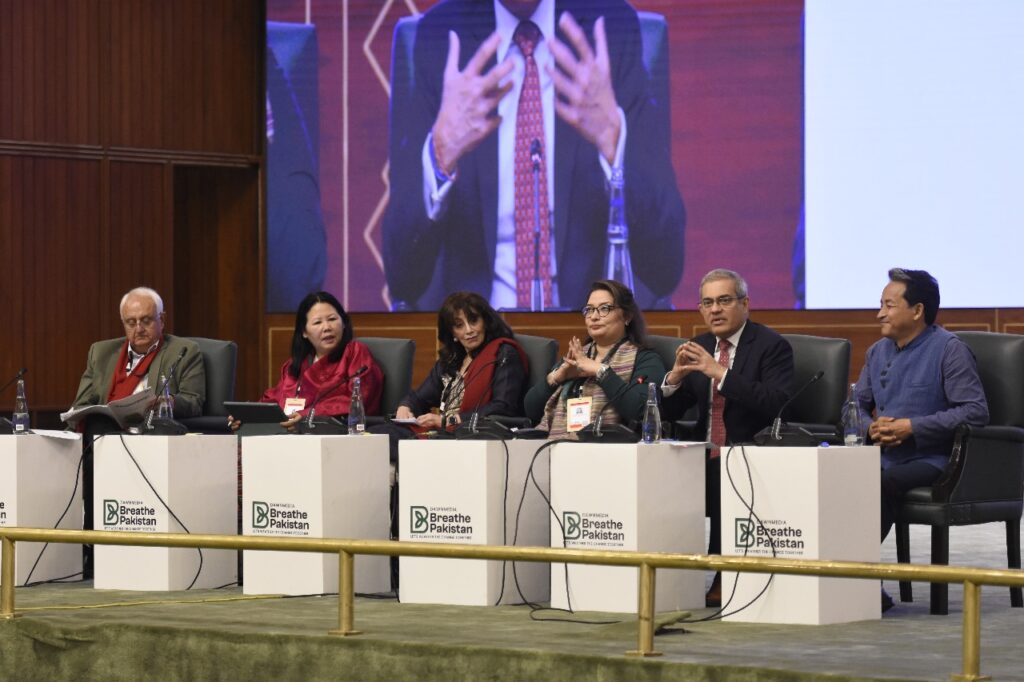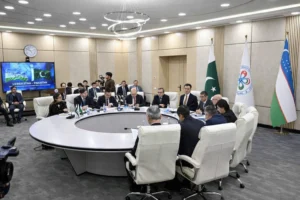PM’s Aide Romina Khurshid Advocates for South Asian Collaboration on Glacier Research, Disaster Response

Islamabad, The Gulf Observer: Prime Minister’s Coordinator for Climate Change, Romina Khurshid Alam has called for the establishment of a South Asian Glacier Research Consortium and the enhancement of the SAARC environment action plan to address the escalating challenges posed by glacial melt in the region.
Addressing a session on Glacial Melt – A Sustainable Strategy for the Water Towers of South Asia at Breath Pakistan conference on Thursday, PM’s aide said Pakistan has launched the glacier protection initiative under the national climate change policy.
Ms. Romina said Pakistan, home to over 7,000 glaciers – the largest number outside the polar regions – is witnessing unprecedented glacial melt due to rising global temperatures. She highlighted the dangers of glacial lake outburst floods (GLOFs), which threaten millions of people across South Asia.
“These catastrophic events are exacerbated by the rapid retreat of glaciers, endangering not only local communities but also the water security of the entire region”, she added. “The Indus River, which is heavily dependent on glacial meltwater, is at significant risk, and with it, the livelihoods of million people who rely on its waters,” Ms. Romina said.
Ms. Romina outlined Pakistan’s efforts to tackle these challenges, including the launch of the glacier protection initiative under the national climate change policy. She further highlighted the GLOF-II Project, funded by the Green Climate Fund (GCF) and the United Nations Development Programme (UNDP), which aims to implement community-based early warning systems in Pakistan’s northern areas. The project is designed to reduce the impact of GLOFs and help communities better prepare for natural disasters.
Ms. Romina stressed the need for enhanced transboundary water diplomacy among South Asian nations to foster joint monitoring and a unified response to the ongoing threats posed by glacial melt. “Regional cooperation is essential for the effective management of shared resources and disaster response,” she said.
Ms. Romina also advocated for strengthening the SAARC environment action plan to promote shared data collection on glacial melt across the region. Such collaboration, she argued, is vital for building a unified approach to address the scientific, environmental, and humanitarian aspects of glacial retreat.
She proposed the establishment of a South Asian Glacier Research Consortium to facilitate scientific collaboration on glacial research and disaster response mechanisms. This consortium would serve as a platform for South Asian countries to exchange knowledge, share research, and develop innovative solutions to protect glaciers and mitigate the effects of their rapid melting.
In addition to scientific and policy initiatives, Ms. Romina called for the creation of regional climate financing mechanisms to support glacial adaptation strategies. “It is imperative that South Asia collectively invests in the long-term resilience of our glaciers and the communities that depend on them,” she stated.
She underscored the critical importance of regional unity in addressing the growing challenges of climate change and its impact on glacial ecosystems. With South Asia being home to some of the world’s most vulnerable glaciers, she called for an enhanced regional cooperation and climate financing to secure the future of the region’s water resources and ecosystems.


